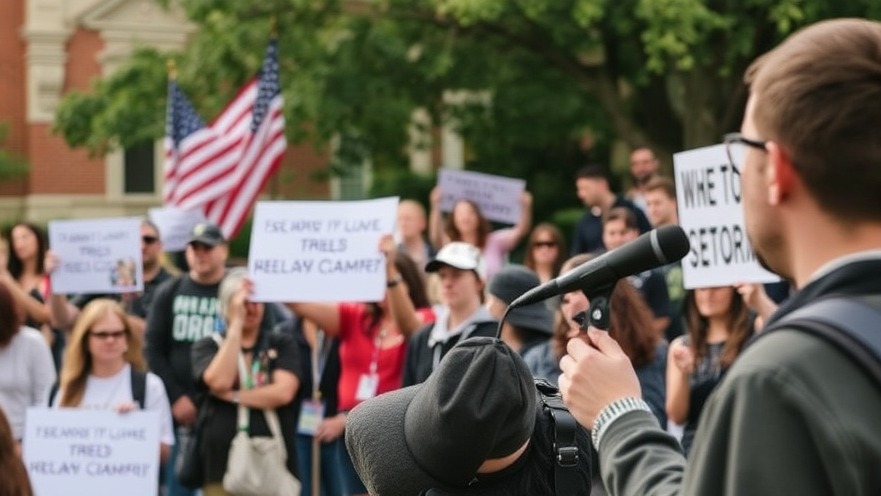
Texas Forms Committees to Address Free Speech Following Tragic Events
Following the unsettling death of Christian conservative activist Charlie Kirk, Texas legislators are mobilizing to tackle issues surrounding free speech on college campuses. House Speaker Dustin Burrows and Lt. Gov. Dan Patrick unveiled the establishment of Select Committees on Civil Discourse & Freedom of Speech in Higher Education, aimed at addressing concerns raised since Kirk's tragic shooting on September 6 while addressing students at Utah Valley University.
A Response to Rising Tensions
This initiative from Texas lawmakers comes in response to mounting frustrations regarding perceived bias among faculty and students at state universities. In various instances, voices criticizing Kirk and his approaches in the wake of his assassination have sparked outrage among conservative circles. For instance, a viral video showcasing a University of North Texas student expressing discomfort over classmates’ reactions to Kirk's killing drew the ire of officials.
Political Landscape Under Scrutiny
The political ramifications of Kirk’s death—and the subsequent discussions about free speech—illustrate a pivotal moment within Texas education and its political spectrum. Republican lawmakers are not only responding to Kirk's death but also pushing back against perceived anti-conservative sentiment in academia.
Already, Texas A&M University has seen the removal of staff following controversial incidents that were highlighted in videos circulating on social media. The broader implications speak to a shift in educational discourse and political accountability.
Committees Composed of Diverse Lawmakers
The committees established consist of members from both parties, indicating a unified yet contentious approach to tackling the issues at hand. This bipartisan composition could potentially lead to significant legislative recommendations that might reshape how free speech and civil discourse are approached in educational settings.
Future Insights: The Evolution of Academic Freedom
As this story unfolds, we foresee additional debates surrounding the balance of free speech and institutional accountability. With the Texas elections approaching in 2025, the dynamics of this issue may influence not just educational policies but also broader political landscapes.
The tragedy of Charlie Kirk is likely to be framed as a critical moment for conservatives advocating for their beliefs to resonate across public institutions. This current atmosphere could transform how universities prioritize free speech in contrast with faculty regulations and student interests.
Community Reactions and the Role of Social Media
Public reaction to Kirk's murder reflects a polarized society, where online platforms have become battlegrounds for discourse. Posts celebrating or criticizing reactions to Kirk’s death can significantly sway public sentiment. As this situation develops, understanding the range of opinions illustrated on social media platforms will be vital.
Concluding Thoughts on the Implications of Free Speech Committees
The formation of these committees is not merely about investigating bias; it encapsulates a broader conversation about the future of education in Texas. As students, educators, and lawmakers navigate this turbulent phase, the ongoing discussions underscore the importance of ensuring that campuses remain safe spaces for all viewpoints, while also holding individuals accountable for their expressions.
In this charged atmosphere, it's crucial for listeners to remain informed about evolving Texas politics and the implications for educational policies that arise out of these conversations. Supporting open dialogues about sensitive subjects in schools will be essential in moving towards a constructive resolution.
 Add Element
Add Element  Add Row
Add Row 



Write A Comment